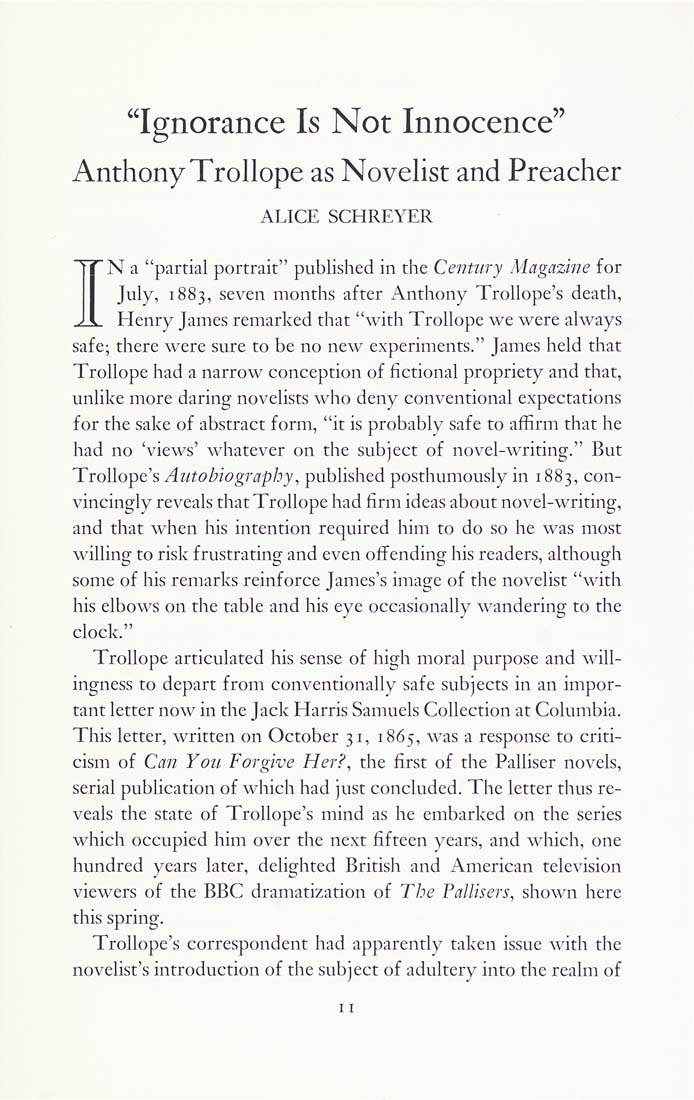Columbia Library columns (v.26(1976Nov-1977May))
(New York : Friends of the Columbia Libraries. )
|
||
|
|
|
|
| v.26,no.3(1977:May): Page 11 |

"Ignorance Is Not Innocence" Anthony Trollope as Novelist and Preacher ALICE SCHREYER IN a "partial portrait" published in the Century Magazine for July, 1883, seven months after Anthony TroUope's death, Henry James remarked that "with Trollope we were always safe; there were sure to be no new experiments." James held that Trollope had a narrow conception of fictional propriety and that, unlike more daring novelists who deny conventional expectations for the sake of abstract form, "it is probably safe to affirm that he had no 'views' whatever on the subject of novel-writing." But Trollope's Autobiography, published posthumously in 1883, con¬ vincingly reveals that Trollope had firm ideas about novel-writing, and that when his intention required him to do so he ■was most willing to risk frustrating and even offending his readers, although some of his remarks reinforce James's image of the novelist "with his elbows on the table and his eye occasionally wandering to the clock." Trollope articulated his sense of high moral purpose and will¬ ingness to depart from conventionally safe subjects in an impor¬ tant letter now in the Jack Harris Samuels Collection at Columbia. This letter, written on October 31, 1865, was a response to criti¬ cism of Can You Forgive Her?, the first of the Palliser novels, serial publication of which had just concluded. The letter thus re¬ veals the state of TroUope's mind as he embarked on the series which occupied him over the next fifteen years, and which, one hundred years later, delighted British and American television viewers of the BBC dramatization of The Pallisers, shown here this spring. TroUope's correspondent had apparently taken issue with the novelist's introduction of the subject of adultery into the realm of |
| v.26,no.3(1977:May): Page 11 |







